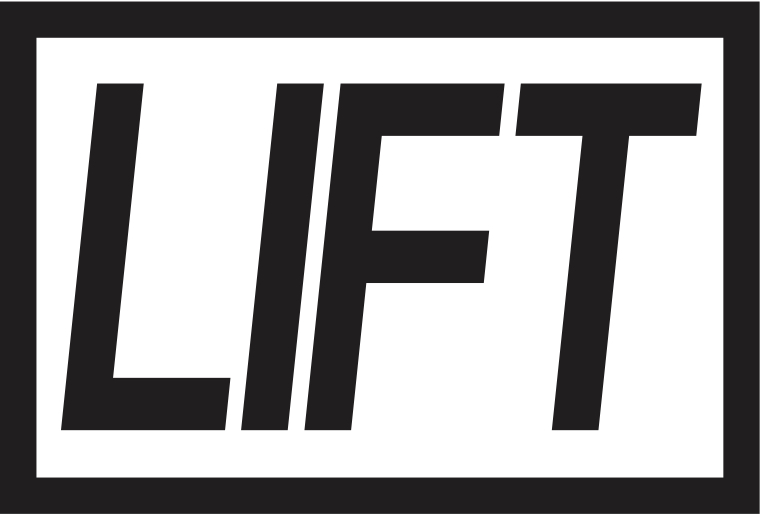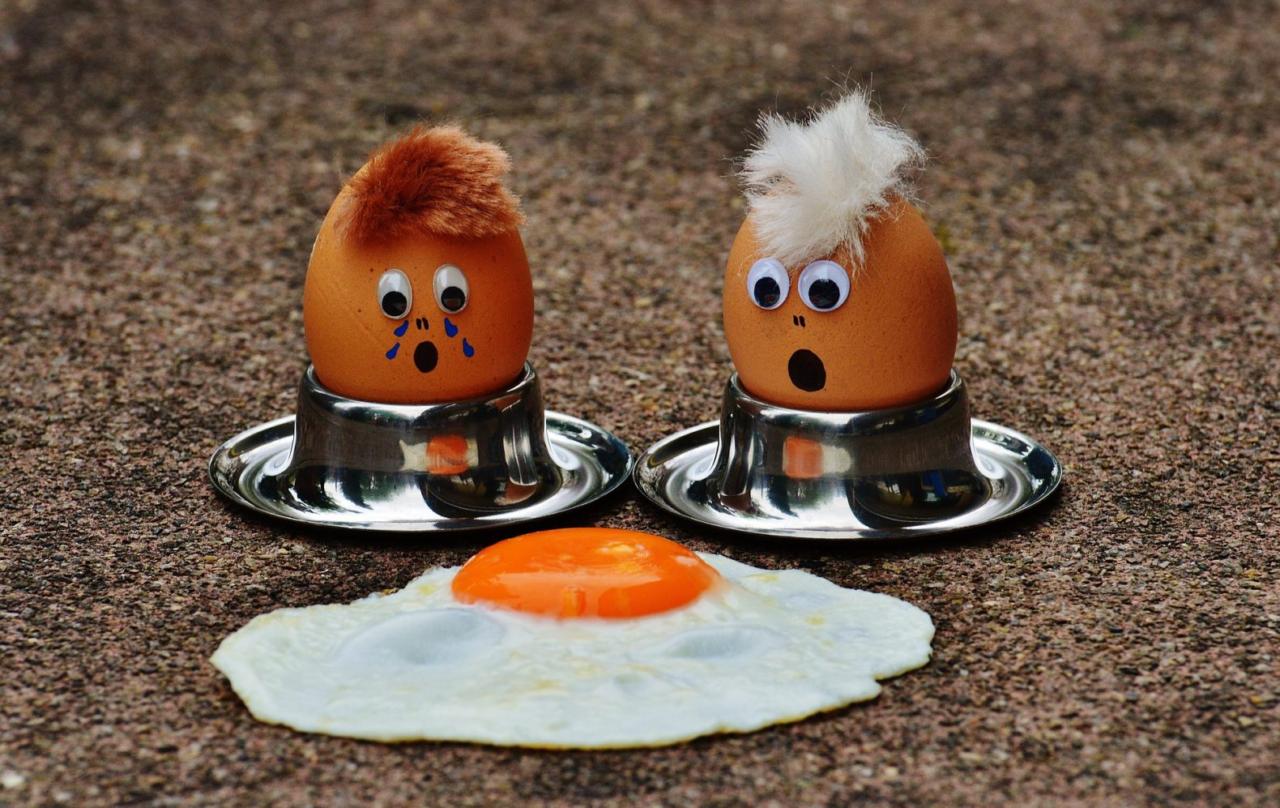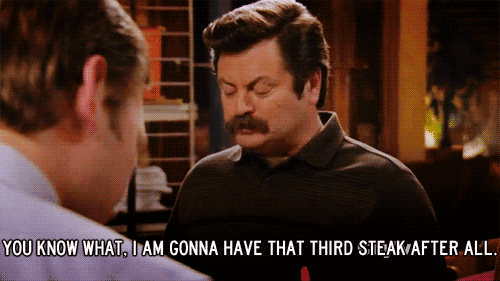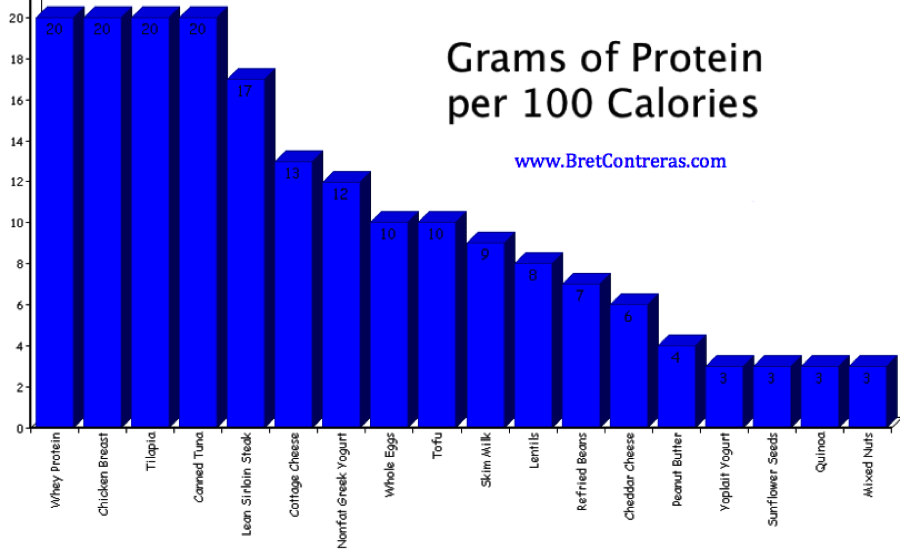WHAT EXACTLY IS PROTEIN?
Fat loss can be complicated and confusing due to the internet and all the products making false claims and promises. So we’ll keep it natural and simple with protein. First, a very brief overview on what protein is. Protein makes up about 20% of the body, which is quite a bit when you consider how much of our body is made of water. Proteins form hormones, enzymes, hair, blood cells, nails and of course our muscles. The body breaks down and rebuilds proteins on a daily basis and not just when we work out so having a proper amount of protein is important everyday. Small units called amino acids make up proteins, with leucine being the most important amino acid for building muscle as it stimulates the muscle protein synthesis (building) pathway known as Mtor (Mammallian Target of Rapamycin). Exercise also stimulates this pathway. So protein with an adequate amount of leucine plus exercise helps build lean muscle mass because science.

4 REASONS WHY PROTEIN IS ESSENTIAL FOR FAT LOSS
1. Lean Muscle Mass & Metabolism: Getting that “toned” look
Extra protein is vital If you are someone who is trying to lose fat, and presumably on a caloric deficit, because your body has less energy to support the muscle repair and growth process. Greater protein can help preserve more lean muscle mass, which also stimulates your metabolism. A meta-analysis of 18 randomized controlled trials found that people over the age of 50 who were trying to lose weight could preserve lean body mass more effectively when on a high protein diet(1). Protein is also important If you’re on the opposite end and you’re trying to gain muscle and size. So progressively lifting heavier weights, and not Jillian Michael weights, plus protein builds lean muscle mass and gives you that “toned” look. Don’t worry, ladies, you won’t get bulky!
2. Satiety Or: How I learned to stop eating so much and love the fullness
Satiety refers to the feeling of fullness and protein causes the greatest satiety. So if you eat more protein then you are more likely to eat less since you will be fuller for longer periods of time. Add some fibre in there, which is another blog post in itself, and you have magic! How does protein actually do this? By suppressing an evil sounding hormone called ghrelin.
Ghrelin is released by the stomach and is considered a hunger hormone because it stimulates appetite. A study done by Foster-Schubert et al. found that protein was the best suppressor of ghrelin in both the duration and the extent of suppression (2). Eating carbohydrates led to an initial strong suppression, but ghrelin levels rebounded after which led to even higher levels of ghrelin (2). Fats were found to be the worst at supressing ghrelin (2). Please note that this does not make carbs or fats evil, regardless of whatever Dr. Oz is telling you. So it seems that daily nutrition that is high in protein is the best way to keep hunger at bay.
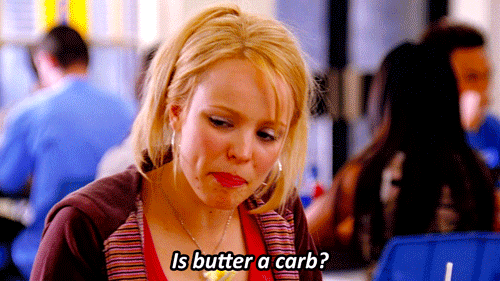
3. Thermic Effect Of Food (TEF): Burn calories while you eat
The thermic effect of food refers to the energy needed to consume and break down different foods. Our bodies burn calories to break down foods so yes, we burn calories while we eat. Unfortunately for you and I, eating more does not mean you will get supper lean because we’re not burning all the calories when we eat. There are many numbers thrown out there if you were to Google “Thermic effect of protein” so we’re going to go with ~25% as that’s the most consistent and reliable number I’ve found. So hypothetically if you eat 200 calories of cottage cheese, your body would burn 50 of those calories (25%) to break it down. In comparison, carbs burn anywhere from 5-15% and fat is anywhere between 0-5%.
4. Long Term Benefits – Sustainability and Compliance
This is the most important factor. Most diets fail and I hate using the word “diet” because most fad diets are not sustainable. These diets usually force people to drastically reduce their calories and a macronutrient like carbs or fats. These macronutrients don’t make you gain weight, eating too much makes you gain weight. These diets may work in the short term but as soon as you stop following that template, boom! Weight back on!
It’s all about finding a way to eat that is sustainable and enjoyable. You don’t want to be miserable everyday because you hate your food. What’s the point of losing all the weight if you’re going to gain it back anyway? You’re better off makings smaller changes in the short term for greater long term success. A study has found that higher protein intake resulted in a 50% lower body weight regain over time (1). This is most likely due to greater lean muscle mass retention, increased metabolism, satiety, thermic effect of food, and most importantly, adherence (4). A higher protein diet is sustainable over a longer period of time. And that’s what you want, a way of eating that you can actually maintain.
HOW MUCH DO YOU ACTUALLY NEED
Do a quick Google search and you will find a wide range of protein recommendations. Many of these recommendations are on the lower end because they are recommendations for sedentary adults who are neither strength training or on a mission towards fat loss. If you’re reading this then I’m going to assume you’re doing one of the two. After reading several books and literature on nutrition and protein, I’m going to go with 0.7-1.0 grams of protein per pound of body weight per day if you are strength training and/or want for fat loss. It could be more or less but the exact number would depend on your starting level, age, weight, and your goals. Below is a great chart made by Bret Contreras on the best protein sources per 100 calories (5)
HOW TO INCORPORATE MORE PROTEIN
You need a game plan! As in sit down, write down what you eat and see what meals need improvement. I find that snacks and breakfast are very low in protein for most people. There are even apps that do it for you. After that, make a realistic plan on how you are going to incorporate more protein in your snacks or a certain meal. Do that for couple of weeks and then repeat the process with a different meal. Ideally you want to have protein in every meal and snack throughout the day, especially if you are someone whose goal is fat loss. With that being said, you’re only setting yourself up for failure if you try to get 120 grams of protein after you’ve been getting 40-50 grams for the last 20-40 years of life. You want to gradually increase your protein so it would be better to aim for 70-80 grams of protein at first and then go from there. This way may take a wee bit longer but it has a much greater chance of success and adherence compared to changing all your habits at once (6). Patience and persistence are the keys to success.
THE RECAP
• An adequate amount of protein is needed for lean muscle mass to give you that “toned” look
•Protein needs the most energy to break down at 25% compared to 5-5% for carbs and 5% for fats.
• You’re less likely to regain your weight if you increase your protein and find an enjoyable and sustainable way of eating.
• Aim for 0.7 -1 grams of protein per pound if you are strength training and trying to lose fat
• Makes small changes instead of large overhauls for long term success
Pure protein, brothers and sisters!
